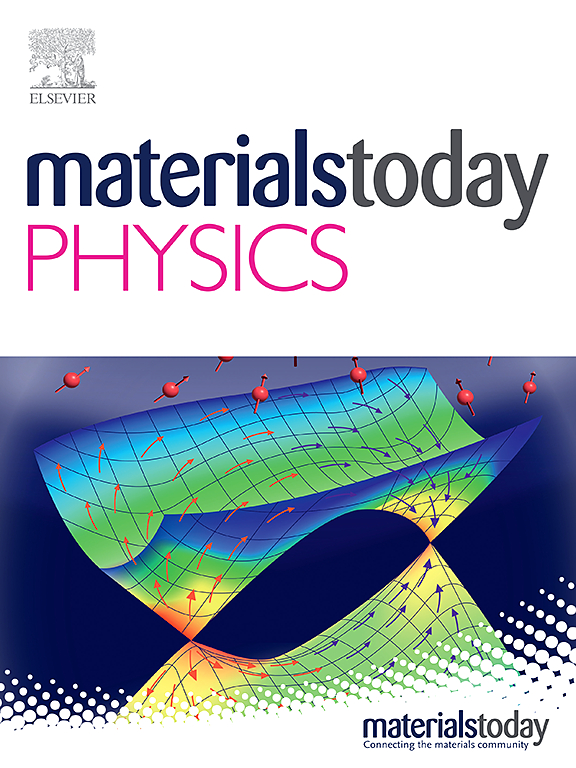eDoping:一个用于评估半导体和绝缘体材料中点缺陷掺杂极限的高通量软件包
IF 9.7
2区 材料科学
Q1 MATERIALS SCIENCE, MULTIDISCIPLINARY
引用次数: 0
摘要
掺杂对半导体和绝缘体材料的物理性能有重要影响,在其技术应用中起着举足轻重的作用。这些效应在热电、光伏和太阳能电池等设备中尤为明显。基于密度泛函理论的第一性原理计算已经成为研究固体材料中点缺陷的一种强有力的方法。在这里,我们介绍eDoping,这是一个Python软件包,旨在作为一个强大的工具包,用于设置初始计算和进行后处理分析,以使用广泛采用的密度泛函理论推导半导体中的缺陷效应。eDoping为点缺陷研究提供了一个用户友好的命令行界面,包括化学稳定域、缺陷电荷跃迁水平、形成能、自一致费米能、冻结费米能和缺陷载流子浓度等方面。它能够在原子水平上探索关键的材料特性,解决与材料相容性相关的问题。此外,它作为自动化高通量缺陷计算的一个有价值的框架,有助于我们从理论角度理解半导体中点缺陷的热力学性质。本文章由计算机程序翻译,如有差异,请以英文原文为准。
eDoping: A high-throughput software package for evaluating point defect doping limits in semiconductor and insulator materials
Doping significantly influences the physical properties of semiconductor and insulator materials, playing a pivotal role in their technological applications. These effects are particularly pronounced in devices like thermoelectrics, photovoltaics, and solar cells. First-principles calculations, based on density functional theory, have emerged as a powerful method for investigating point defects in solid materials. Here, we introduce eDoping, a Python software package designed to serve as a robust toolkit for setting up initial calculations and conducting post-processing analysis to derive defect effects in semiconductors using widely adopted density functional theory. eDoping offers a user-friendly command-line interface for point defect studies, encompassing aspects like chemical stability domains, defect charge transition levels, formation energies, self-consistent Fermi energy, frozen Fermi energy, and defect carrier concentrations. It enables the exploration of key material properties at the atomic level, addressing questions related to material dopability. Moreover, it serves as a valuable framework for automating high-throughput defect calculations, contributing to our understanding of the thermodynamic properties of point defects in semiconductors from a theoretical perspective.
求助全文
通过发布文献求助,成功后即可免费获取论文全文。
去求助
来源期刊

Materials Today Physics
Materials Science-General Materials Science
CiteScore
14.00
自引率
7.80%
发文量
284
审稿时长
15 days
期刊介绍:
Materials Today Physics is a multi-disciplinary journal focused on the physics of materials, encompassing both the physical properties and materials synthesis. Operating at the interface of physics and materials science, this journal covers one of the largest and most dynamic fields within physical science. The forefront research in materials physics is driving advancements in new materials, uncovering new physics, and fostering novel applications at an unprecedented pace.
 求助内容:
求助内容: 应助结果提醒方式:
应助结果提醒方式:


